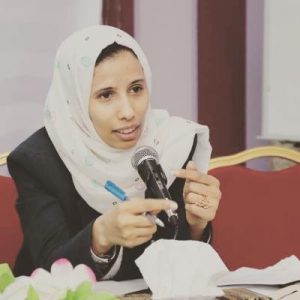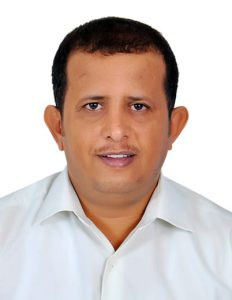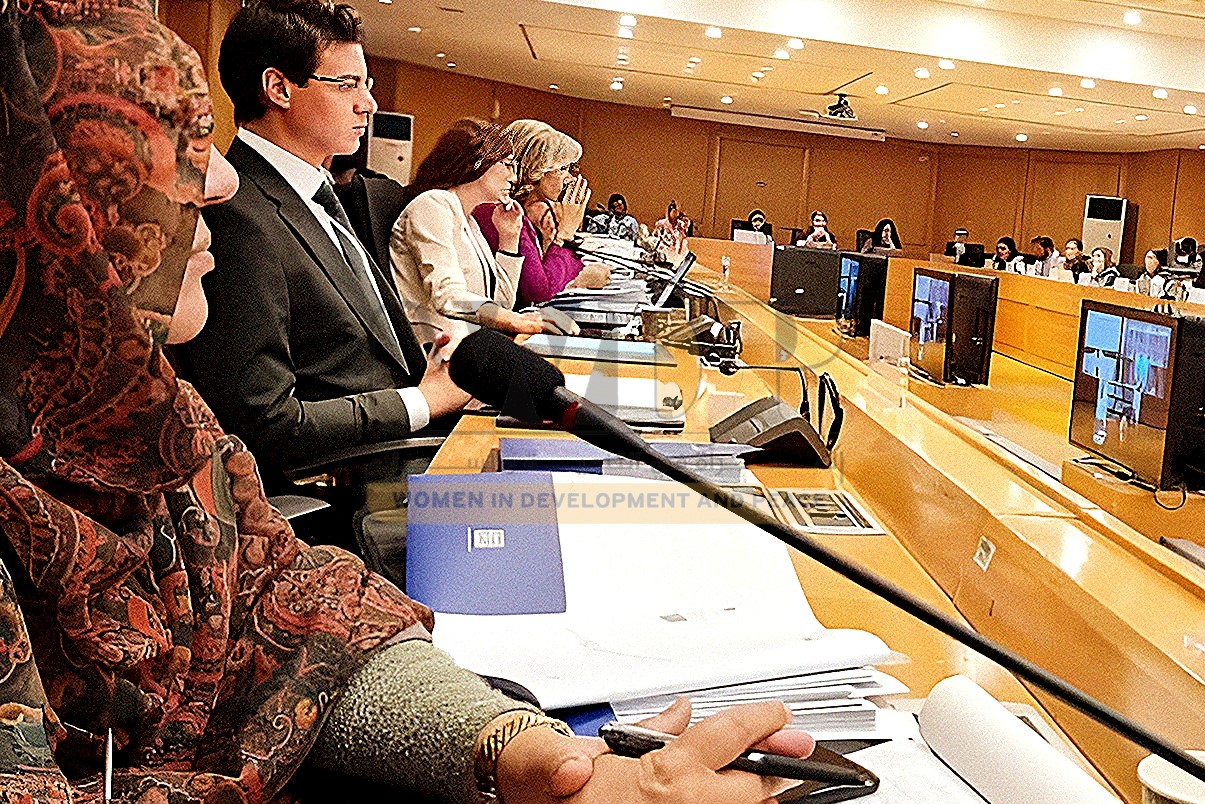Women in Development and Peace – Hanan Hussein
In Yemen, women have historically faced significant challenges in entering the diplomatic corps. Over time, the number of women diplomats has increased noticeably, contributing to a shift in gender stereotypes in Yemeni society and opening up opportunities for more Yemeni women to participate in decision-making at the local and international levels. The role of various Yemeni media outlets has been crucial in advocating for women diplomats and bringing their stories to the public.
Some press reports indicate that certain Yemeni media outlets have played a significant role in supporting women’s participation in diplomatic work by highlighting the achievements of Yemeni women diplomats who have challenged stereotypes. Media outlets have also helped encourage more women to engage in diplomatic and political work by raising awareness of their vital role in the political process and peacebuilding, and by showcasing the success stories of influential women diplomats.
Media Coverage
Media outlets vary in their approaches, with some being modern and others more traditional, but they all serve the common goal of providing a service to citizens and society by transparently presenting various issues. One such issue is the success stories of women in the diplomatic field, which are highlighted through news reports that showcase their achievements and skills. Radio or television programs often feature interviews with women in this field to learn from their experiences, while newspapers and magazines conduct interviews that help spread their personal stories and inspire other women.
The Media’s Role in Highlighting Yemeni Women Diplomats
Despite the paramount importance of women’s presence in the diplomatic corps, Yemeni women continue to face numerous challenges that prevent them from effectively participating in this critical and influential field. Their absence from various media outlets, especially in recent years, exacerbates these challenges, which include gender discrimination in diplomatic work, lack of opportunities, ongoing conflicts, and insufficient media coverage targeting women diplomats.
The primary reasons behind the lack of media coverage on issues related to the diplomatic corps, particularly the role of Yemeni women in this field, can be attributed to the media’s service to political parties.
 Activist and media professional Widad Al-Badwi explained that the ongoing security instability in Yemen has led media outlets to focus more on covering conflicts and disputes than other issues of societal concern, especially those affecting Yemeni women. This has resulted in a lack of media coverage on the diplomatic corps, both for women and men.
Activist and media professional Widad Al-Badwi explained that the ongoing security instability in Yemen has led media outlets to focus more on covering conflicts and disputes than other issues of societal concern, especially those affecting Yemeni women. This has resulted in a lack of media coverage on the diplomatic corps, both for women and men.
She also emphasized that some Yemeni media outlets affiliated with certain parties, particularly since the beginning of the conflict, have become less interested in national and societal issues, instead focusing on the political and military aspects aligned with one of the parties to the conflict.
The Impact of Traditional Media
Traditional media outlets, such as newspapers, television, and radio, continue to play a significant role in shaping public opinion and enhancing the status of women in society by raising awareness about various women’s issues. They provide information about women’s achievements in different fields, including education, health, politics, economics, and others.
Some media outlets also highlight the challenges faced by women in Yemen, especially during these years of conflict, such as violence, gender discrimination, and the impact of the conflict on women in various areas, presenting numerous human stories and analyses. The media provides information about women’s accomplishments in fields traditionally considered male-dominated.
Media experts believe that traditional media outlets enjoy greater credibility than social media platforms because they have been established for many years and have earned the trust of the public. They also have a wider and faster reach than social media due to connectivity and internet service issues in many Yemeni regions. Experts emphasize that traditional media has a significant and effective influence on decision-makers by covering women’s issues in various fields, including politics and diplomacy.
The Impact of Modern Media
The emergence of social media has had a profound impact on all aspects of Yemeni society, including women’s issues and their success stories in various fields, particularly in politics and diplomacy. One of the most significant impacts has been the spread of societal awareness about women’s issues through the expression of opinions and the sharing of experiences. Social media has also helped shape societal and political views on the importance of supporting women’s participation in decision-making by providing them with a platform to voice their opinions and ideas to society and decision-makers.
Many researchers and experts believe that social media has also helped women break free from stereotypical perceptions in Yemeni society. It has raised awareness and demonstrated that women are capable of succeeding in various fields. It has also provided opportunities for women to connect with each other and with other Yemeni women diplomats, enabling them to exchange experiences and support.
Challenges Through Media’s Perspective
 Aden Al-Ghad Editor-in-Chief Fathi Bin Lazraq pointed out the challenges faced by Yemeni media and diplomatic sectors during the conflict. He explained that media work faced some difficulties in its path, and media outlets faced many obstacles in carrying out their mission, such as restrictions on freedom of the press and expression, targeting of journalists and media institutions, and others.
Aden Al-Ghad Editor-in-Chief Fathi Bin Lazraq pointed out the challenges faced by Yemeni media and diplomatic sectors during the conflict. He explained that media work faced some difficulties in its path, and media outlets faced many obstacles in carrying out their mission, such as restrictions on freedom of the press and expression, targeting of journalists and media institutions, and others.
Regarding diplomatic work, Bin Lazraq says: “The diplomatic corps has been depleted during the conflict. This was evident in the decline of Yemen’s role in the international arena, the increase in armed conflicts, and the weakness of Yemeni diplomatic representation abroad. In addition to the presence of a very large staff in diplomatic work, which is one of the most important aspects of the depletion that diplomatic work has been subjected to at this stage, and it puts pressure on the country’s financial and human resources.”
Bin Lazraq also pointed out that there is a large number of diplomatic staff in Yemeni embassies abroad, exceeding what is required. He explained this by the abundance of political parties in Yemen and the desire of each party to have a special representative to represent it in diplomatic work. As a result, work in the diplomatic corps was divided according to the political division.
Bin Lazraq stressed that women are the most affected by this division. With the focus on political division, competence, qualifications, and gender were neglected in the selection of diplomatic staff. As a result, women were not primarily present in diplomatic work upon the division.
Recommendations
Bin Lazraq confirms that women’s presence is very weak compared to their presence and existence in the local community. Therefore, their role should be strengthened and supported to obtain larger and more important positions, so that they can do their duty towards society. He pointed out that the political and diplomatic structure should be restructured in a way that ensures an effective presence for women in these corps so that the media can shed light on these achievements and developments that serve women and Yemen.
Researchers and experts recommend that the media focus on successful women in society who have achieved achievements in various fields, to change the stereotype of women that confines them to the role of housewives only. They confirm that women are capable of playing multiple roles in society, such as ambassadors, ministers, and spokespersons for the issues and concerns of society.
They also advise on the need to train journalists to cover women’s issues objectively and fairly. Cooperation between the media and women’s organizations is also necessary to enhance coverage of women’s political and diplomatic issues, focus on the importance of their role, and give more space for women diplomats to express their ideas.
The media plays a pivotal role in presenting women’s issues in general, and in the diplomatic corps in particular. It has helped to highlight the achievements of Yemeni women working in the diplomatic corps in the past and is working to change the stereotype of women in society.
There are still some challenges facing the media, but cooperation, solidarity, and working on experts’ recommendations can contribute to empowering Yemeni women and bringing them into the diplomatic field on a larger and broader scale.

